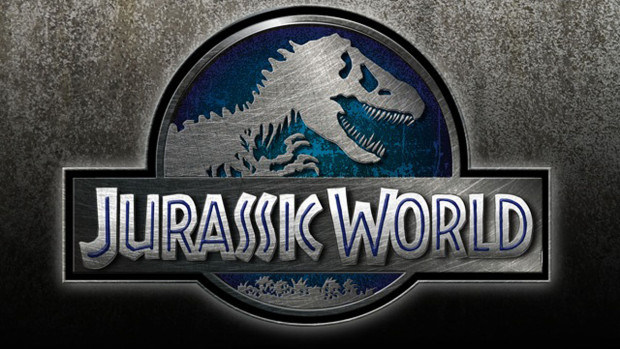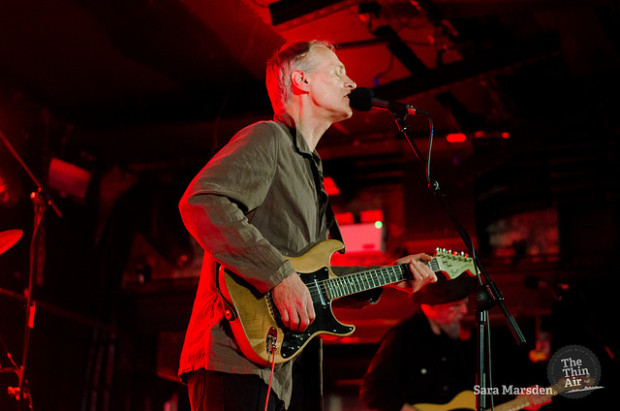No recent blockbuster is so visibly animated by the anxiety of influence as Jurassic World. Coming 14 years after the last inter-species tête-à-tête, and nearly a quarter of a century after the magisterial original, Spielberg’s franchise has been dug out of amber and reanimated for a new generation. Now three sequels in, Jurassic World gestures to its cinematic parent with a half-embarrassed mixture of deference and dread, prodding audience nostalgia with riffs on iconic images while offering a surprisingly self-reflexive commentary on its own bland, sell-out pillaging of that first-time wonder.
Two decades after the park’s initial teething problems, the resort is now a thriving tourist location with all the usual amusement park trappings: long lines, bored wage-earners, obnoxious branding and sweaty, distracted tourists. Richard Hammond’s dream turned tacky nightmare. ‘That first park was legit’ sighs one of the control-room monkeys (Jake Johnston), wearing a vintage park T-shirt he got off eBay. Worried by consumer complacency, park operations boss Claire (Bryce Dallas Howard) and chief geneticist Dr. Wu (a returning B. D. Wong) have developed a genetically modified super-dino to pique the public’s attention. Bigger, meaner, more badass. Dubbed the Indominus Rex, the big girl’s a bit T-Rex, a bit Velociraptor, a bit everything else. She’s super smart and can camouflage! She shoots lasers from his eyes and can make things move with his mind (maybe)! A monster designed by committee, like the film itself. The Indominus is supposed to be scarier and more thrilling than anything that’s come before, but she’s kind of silly looking, without much personality or design logic, any hint of threat neutered by a flat, computer-generated unreality, like an end-level boss from a videogame tie-in. A roaring, boring zombie phantom of something that once throdded with a pulse.
The story echoes of the original are clear. We have two kids, Claire’s nephews (Ty Simpkins, Nick Robinson), sent to the island by their should-know-better parents. The younger one is full of peppy dino enthusiasm and the older one couldn’t really care. When the Indominus escapes its pen, they wander into peril and teach the child-less, career woman Claire lessons about responsibility and parenthood. She has Dr. Grant’s arc and Dr. Sattler’s style, knotting her shirt around her mid-riff, though I doubt Ellie would’ve tackled jungle terrain in those nude high heels. Claire’s assisted by Chris Pratt’s ex-navy raptor wrangler Owen, who has an alpha-bond with the animals. With his denim waistcoat and air of hard-livin’ daring, Owen is like Indiana Jones without the fun, Pratt’s grizzled sternness permanently threatening to break into a Burt Macklin impression. Hovering in the background is Vincent D’Onofrio, who wants to weaponise the raptors, and Irfan Khan’s park financier, who switches from Attenborough-esque dreamer to capitalist asshole for no real reason. Howard, Pratt and the rest struggle with the material. The characters are thinly drawn, the dialogue cheeseball, the plot perfunctory. Jurassic World looks and sounds like a hundred other Hollywood films, coated in an anonymous sheen.
Once everything goes to hell, there are a couple of decently designed set-pieces. An extended sequence of Pterodactyls and their mates pouncing on panicking tourists from the air is fun, hinting at an alternative, quirkier film, a Gremlins-style self-satire about a corporate dino-Disneyworld overrun with vengeful critters. That, at least, would have been a point of view, a flash of wit amongst the unremarkable story and image details. Colin Trevorrow is an inexperienced director to be corralling a mega-millions studio tent-pole, with only one feature, 2012’s visually unremarkable indie Safety Not Guaranteed, under his belt (though who knows what changes he made to the original script, from the new Planet of the Apes’ Amanda Silver and Rick Jaffa).
It’s tempting to draw the lesson that Hollywood studios simply no longer have the appreciation for workmanlike craft required to reproduce Jurassic Park’s controlled economy of suspense and terror. Or that they regard film audiences as the attention-deficit attendees of Jurassic World, to be shuffled from one cynical cash-grab to the other, Samsung or Mercedes logos thrust in their faces. But all the Park sequels have struggled to recapture its magic while offering something new, a difficulty which fits with their thematic insistence on the folly of trying to turn back the clock. Everyone has been so preoccupied with whether or not they could do another Jurassic Park, they didn’t stop to think if they should. Conor Smyth





